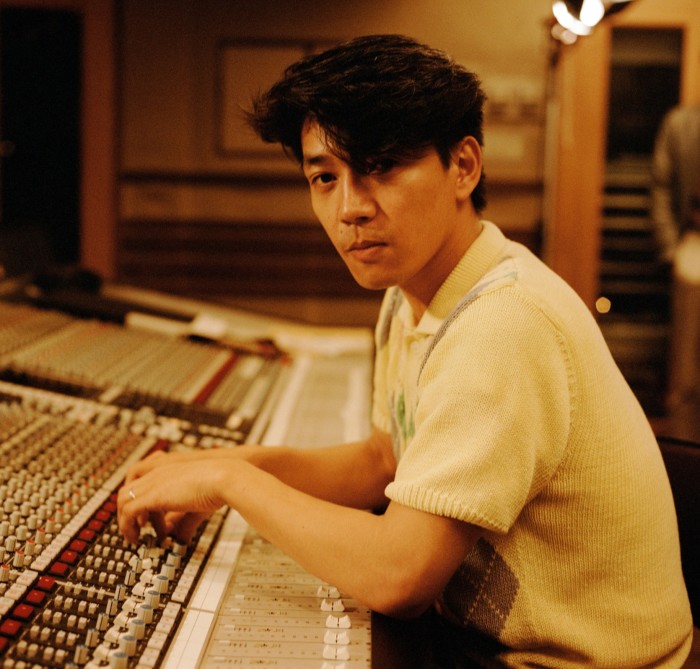Just days before his death on March 28 at the age of 71, Ryuichi Sakamoto used his final reserves of strength to fire off a letter to the governor of Tokyo.
Japan’s most important postwar composer, a pioneer of electronic music and an exemplar of his nation’s creative prowess demanded a halt to the planned felling of hundreds of trees. It was the final stand of a man who had for decades — in life, music and collaboration — defied conformity.
The threatened Jingu park sits beside the new National Stadium — the venue for the delayed and scandalised Tokyo 2020 Olympics, for which Sakamoto pointedly refused to write the anthem. It was an act of calculated ferocity against a country where he believed that the young should be more feisty. In 1992, he had cheerfully written the equivalent anthem for the summer games in Barcelona. “True creativity”, he declared during a 2020 Lunch with the FT under Covid-19 lockdown and in failing health, “is destructive.”
This snubbing of orthodoxy was a thread stitched across the extraordinary diversity of Sakamoto’s works: a portfolio of achievement ranging across dance floor smashes with the Yellow Magic Orchestra (YMO), hip hop compositions, experimental collaborations with David Sylvian and Iggy Pop, the scores for films including The Last Emperor and an acting role opposite David Bowie in the 1983 film Merry Christmas, Mr Lawrence.
But for all his unconventional style and approach, Sakamoto’s embrace by the mainstream was warm. His trophy cabinet heaved with awards, including an Oscar, Grammy, Bafta and Golden Globes.

Born in Tokyo, Sakamoto’s father edited books by Yukio Mishima and other literary giants: the house, he recalled, bustled with creative outsiders. His mother, a hat designer, was the primary route through which Sakamoto encountered classical music and was introduced to the piano. He went to a progressive school once attended by Yoko Ono and was writing music by the age of 10.
But this was also a youth exposed to the 1960s: as musical influences like the Beatles and other western bands filled Japan’s airwaves, his mother would take him to the concerts of trailblazers such as John Cage. On the streets were mass student movements: a crackle of rebellion to which he was drawn.
Sakamoto’s own music grew from conventional foundations: in the 1970s, he graduated from what is now the Tokyo University of the Arts with a masters degree in composition. But he found many of the classes stifling, instead feeding his growing obsession with synthesisers and electronic music. The impression of those early academic leanings, though, stuck fast. His bandmates in YMO — a group Sakamoto joined in 1978 — nicknamed him “the professor”.
With YMO — a hit-generating machine which, among many others, gave the world “Rydeen” and “Behind the Mask” — he enjoyed superstardom. Few bands in Japan were as big at the time and none so globally influential.

YMO was very much of its time: music itself, via the newly evolving instruments of Korg, Roland and Yamaha, was changing. During the late 1970s and early 1980s, Japan’s international profile grew exponentially. Its economy and engineering power seemed ready to take on the world; YMO and Sakamoto were among the exports that made Japan cool. Tokyo, he told the FT with the twinkle of one who had enjoyed the city and the epoch intensely, was at the time the world’s most interesting city.
Sakamoto’s career was one of constant output and endlessly fruitful partnerships. His film and TV scores spanned decades, darting inventively from rough art house erotica to epics including The Revenant and The Sheltering Sky.
Sakamoto’s work rate, even during his late ill health, was described by friends as almost unbroken. The great exception was the period after the terrorist attacks on New York in 2001 — an episode he found so unsettling that he was unable to listen to any music for many months.
An ardent opponent of nuclear power, and a forthright campaigner, Sakamoto’s final protest over the Tokyo trees came with regret. The modern era, he said, was the right time for the Japanese to express anger, but as one who never stopped paying dues to rebellion, he doubted they would ever stand up to authority.
Sakamoto was married three times, and has four children, one of them the famous singer Miu Sakamoto.
Stay connected with us on social media platform for instant update click here to join our Twitter, & Facebook
We are now on Telegram. Click here to join our channel (@TechiUpdate) and stay updated with the latest Technology headlines.
For all the latest Music News Click Here
